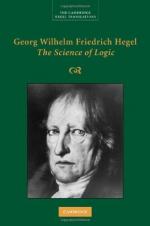|
This section contains 10,354 words (approx. 35 pages at 300 words per page) |

|
SOURCE: Kain, Philip J. “Hegel's Political Theory and Philosophy of History.” CLIO 17, no. 4 (summer 1988): 345-68.
In the following essay, Kain assesses Hegel's indebtedness to the ideas of Jean Jacques Rousseau and Immanuel Kant for his own theories of politics and history. The critic explains Hegel's concept of spirit, and elaborates on why this theory is fundamental to the philosopher's views on the ideal state in the modern world.
I
Hegel's historical and political thought can best be understood if we understand its relationship to Rousseau's political theory and Kant's philosophy of history.
Hegel's conception of the modern state closely resembles Rousseau's ideal community which was based upon rational freedom realized through a general will and reinforced by custom and tradition which shaped the character and interests of the citizens. However, Rousseau's community was utopian—it could not be realized in the modern world. It was incompatible with commerce...
|
This section contains 10,354 words (approx. 35 pages at 300 words per page) |

|


